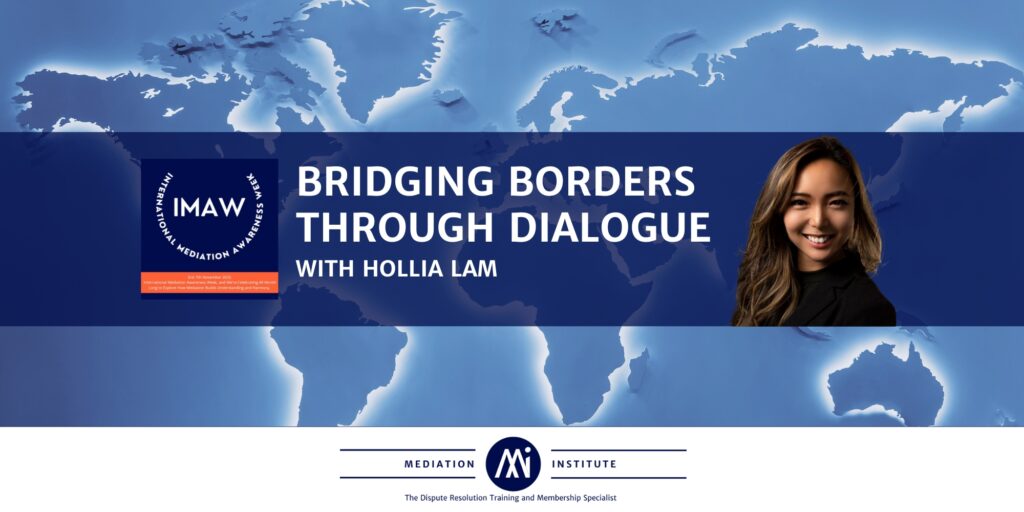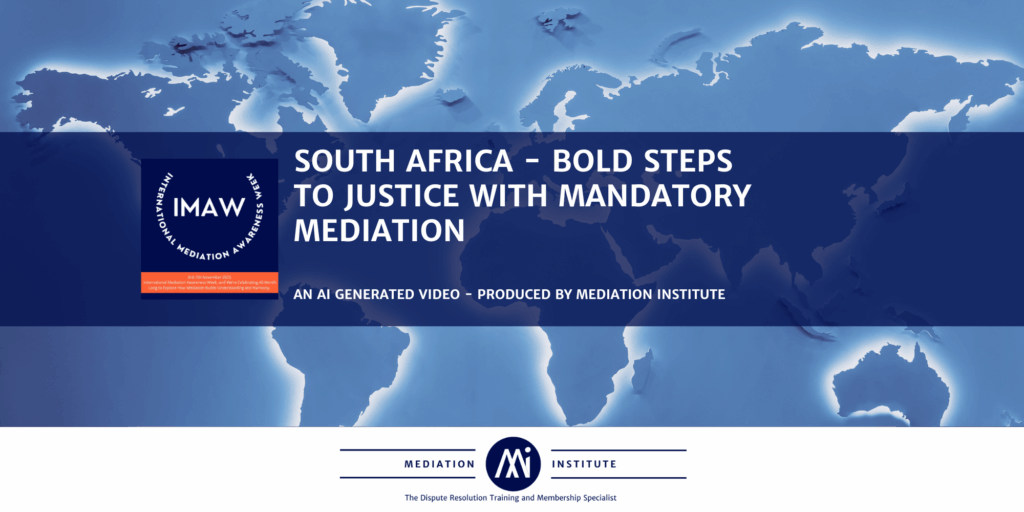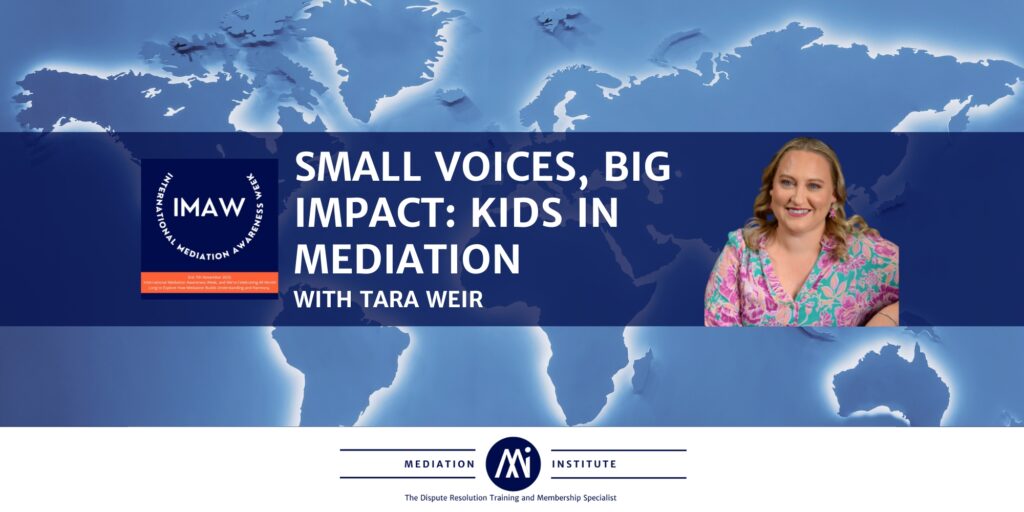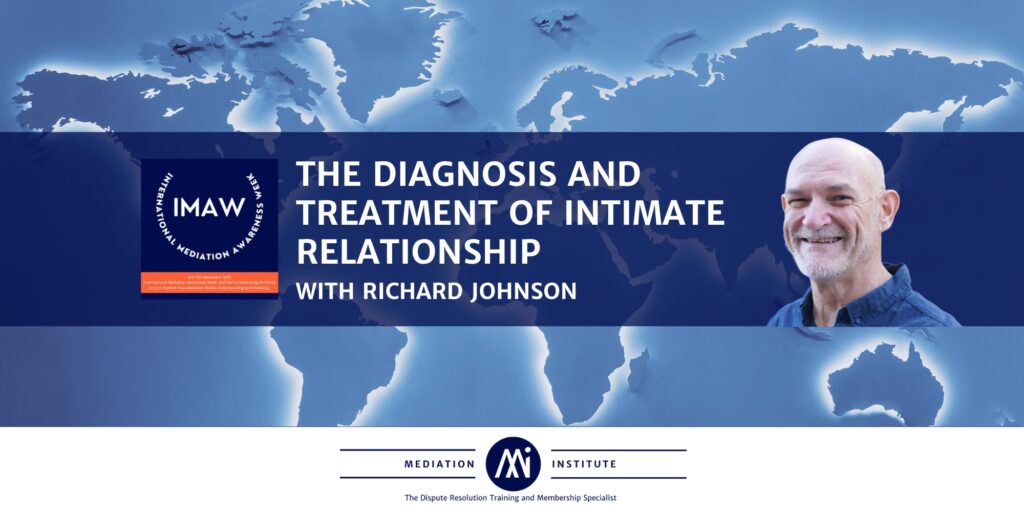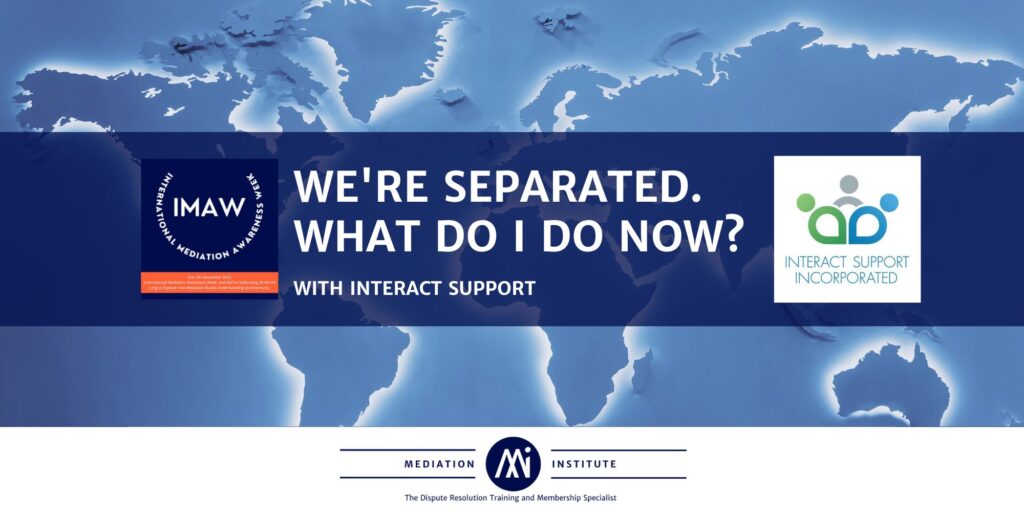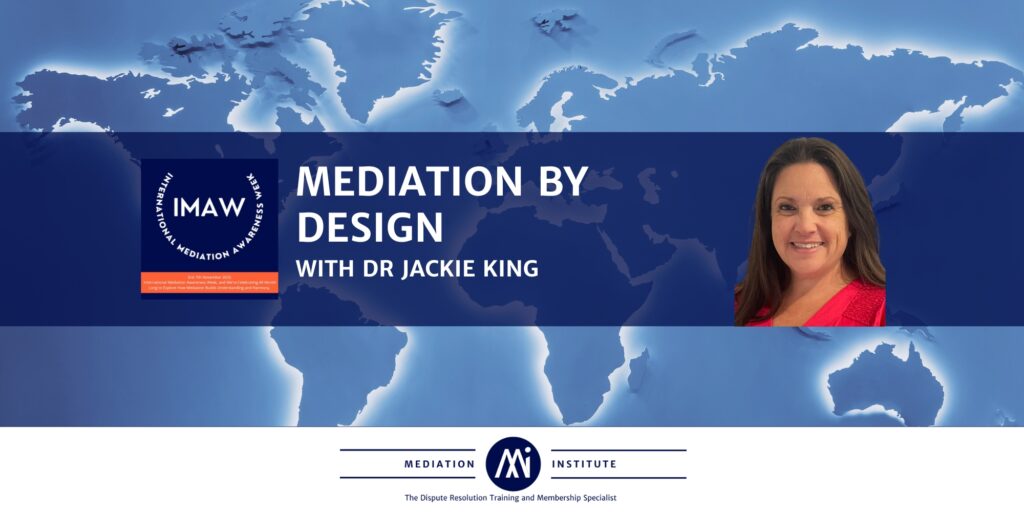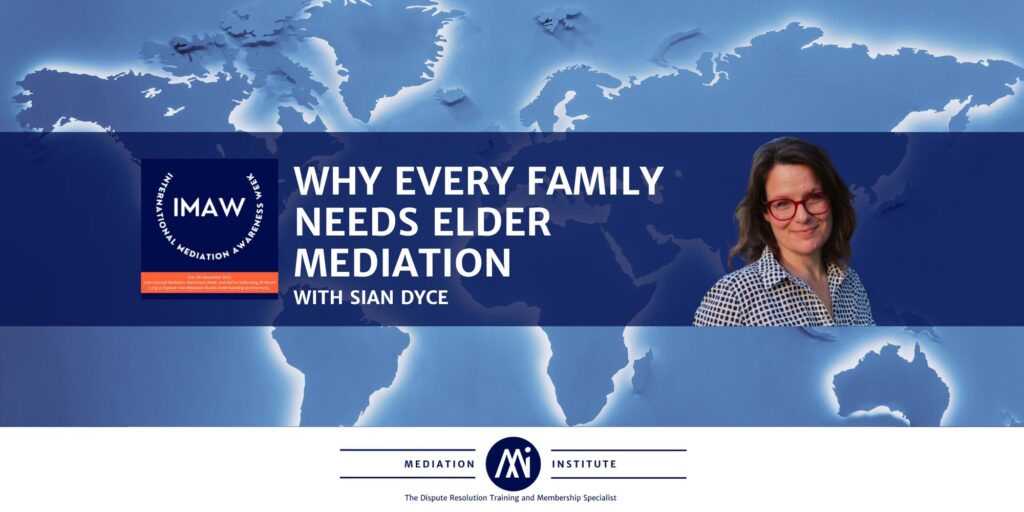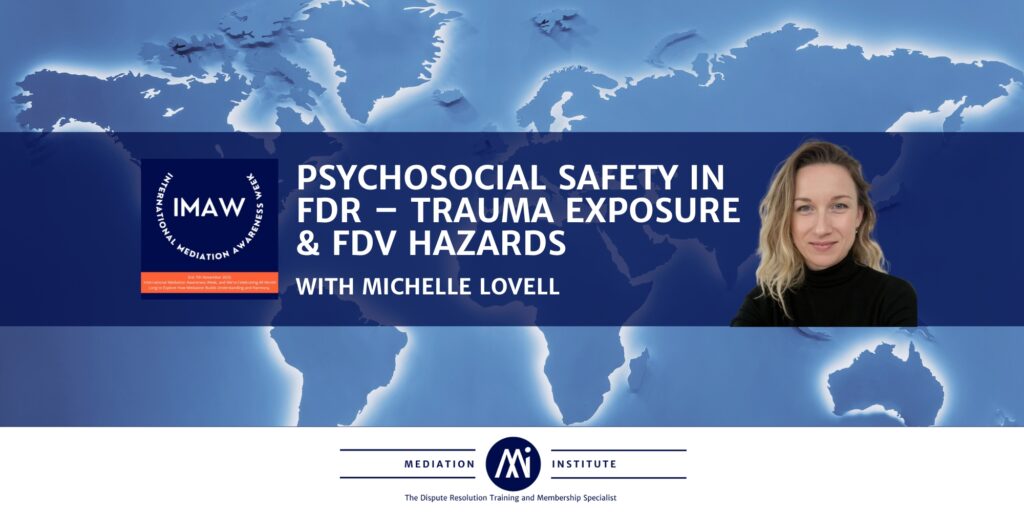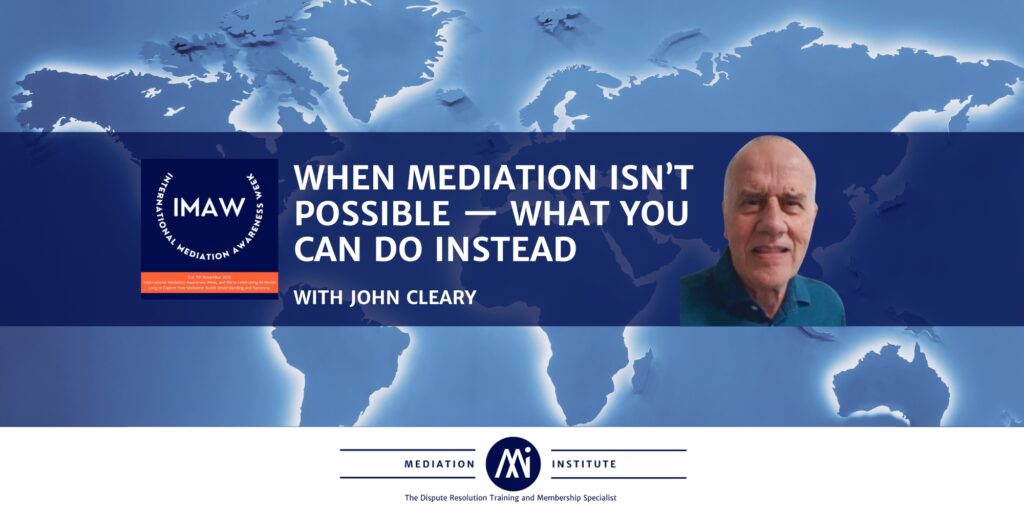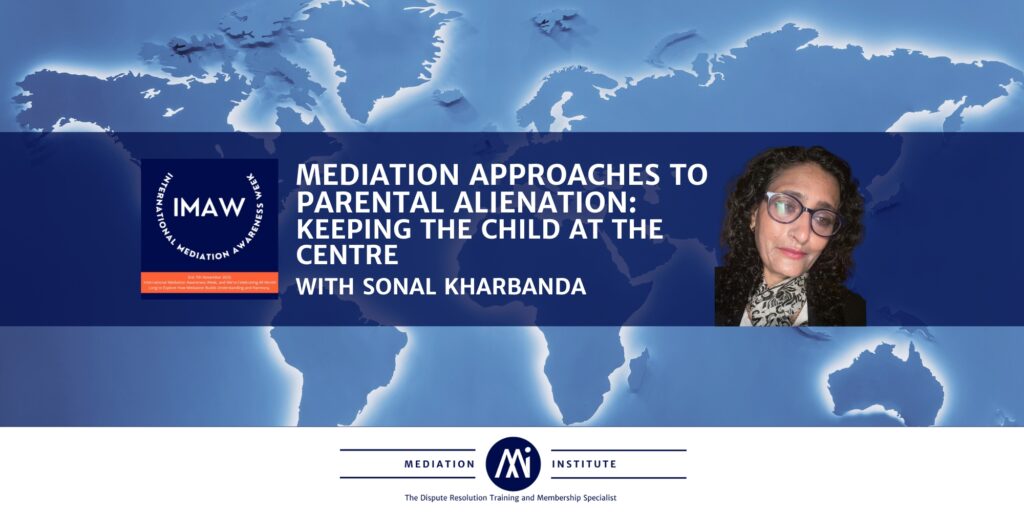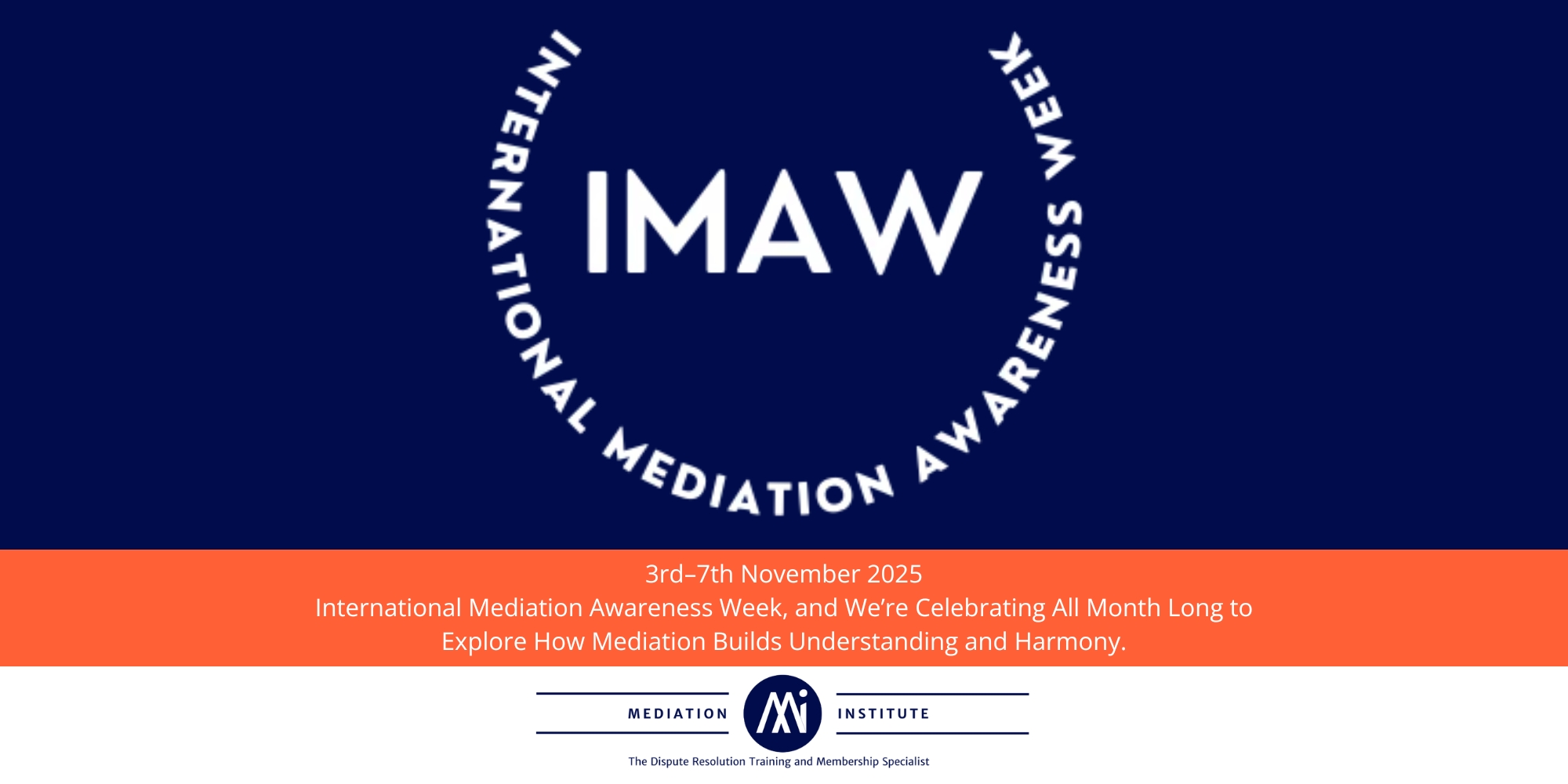
We’re giving mediation more than a week; we’re giving it a month. IMAW25: Explore How Mediation Builds Understanding and Harmony is a month-long celebration dedicated to showcasing the power of mediation to create positive change. Throughout November, we invite individuals, organisations, and communities to discover how mediators help people move from conflict to connection, and how these skills can transform the way we communicate, collaborate, and live together.
We also want to extend a heartfelt thank you to all our IMAW25 speakers for generously sharing their time, knowledge, and passion for mediation. Whether through a live presentation or our first YouTube Premiere, we’re looking forward to spending this time of learning, reflection, and inspiration with you as we explore the many ways mediation builds understanding and harmony.
All IMAW25 events throughout November are free, and we encourage everyone to attend. Please check back throughout the month as we continue to add new events, presentations, and opportunities to get involved in celebrating the power of mediation.
From 6 October 2025 to 5 April 2026, all scheduled sessions will run on Queensland time (AEST). To confirm the equivalent time in your location, please use a Time Zone Converter – Time Difference Calculator.
Bridging Borders Through Dialogue with Hollia Lam
Discover how international mediation bridges legal, cultural, and linguistic divides. In this IMAW25 session, Hollia Lam explores how mediation promotes global understanding, cooperation, and access to justice—creating sustainable outcomes across borders.
South Africa - Bold Steps to Justice with Mandatory Mediation
Watch this short animated video on the introduction of Rule 41A into the South African High Court. If you are more seriously minded, you can access the paper below as well.
Small Voices, Big Impact: Kids in Mediation with Tara Weir
Join Tara Weir for an IMAW25 YouTube Premiere exploring child-inclusive mediation and how it supports families to build positive, child-centred outcomes.
The Diagnosis and Treatment of Intimate Relationship with Richard Johnson
Join Richard Johnson for an insightful IMAW25 session following the recent launch of his book, The Diagnosis and Treatment of Intimate Relationship. This compelling and compassionate guide offers a fresh perspective on understanding, nurturing, and restoring long-term relationships.
Neighbour Dispute Resolution: Before you complain to Council, Call a Mediator
Neighbour issues over fences, trees, pets, and noise can make home life stressful — even to the point where people consider moving. The Interact Community Dispute Resolution Service (ICDRS) helps resolve these tensions early through calm, confidential mediation. Join us to discover how ICDRS supports councils, empowers communities, and helps neighbours rebuild understanding and harmony before conflicts escalate.
We're Separated. What do I do now?
Separation can be overwhelming — emotionally, financially, and legally. This session helps you understand what to do next. Learn about managing finances (including financial abuse and dependency), using Family Dispute Resolution to sort out parenting or pet arrangements, and working out fair property settlements and consent orders. We’ll also answer common post-separation questions to help you move forward with clarity and confidence.
Mediation and a Search for Meaning
This session examines what drives both mediators and disputing parties in the resolution process. It explores the benefits and challenges of face-to-face versus shuttle mediation and considers the drawbacks when lawyers speak on behalf of clients. The discussion highlights how motivation, communication style, and process choice can shape outcomes in mediation.
Mediation by Design with Dr Jackie King
Discover how mediation and human-centred design combine to resolve conflict with empathy as a strategic asset. Join Dr Jackie King, author of The Ultimate Other, for this inspiring IMAW25 session on leadership, self-awareness, and connection.
Why Every Family Needs Elder Mediation
Eighty per cent of people who die in a hospital can’t communicate at the end of their lives. If that were you or your loved one, would your family know your wishes? Who would talk with the doctors and how would they share that information? What about if you broke a hip and couldn’t return home before significant modifications? Do you know where you’d stay? Elder mediation guides families through respectful, collaborative conversations around ageing, with the older person at the centre. This webinar will explore how elder mediation works, when to use it, and why all families will benefit.
Psychosocial Safety in FDR - Trauma Exposure and FDV Hazards
Family Dispute Resolution practitioners often work at the frontline of conflict, trauma, and Family and Domestic Violence (FDV), placing them at heightened risk of psychosocial harm. This free webinar examines how trauma exposure affects practitioners, the early indicators of stress and vicarious trauma, and the practical steps required to meet the Managing Psychosocial Hazards Code of Practice and FDR obligations.
When Mediation Isn't possible - What you can do instead
When mediation cannot proceed, or when the other party refuses to participate, it is easy to feel as though progress is out of reach. But you still have practical options.
This session introduces CM-1 (Conflict Management for One), a structured approach that helps you move forward independently. CM-1 supports clearer thinking, steadier decision-making, and constructive action, even when the other person will not engage.
Mediation Approaches to Parental Alienation: Keeping the child at the Centre
This session provides a concise, practice-focused overview of child-focused mediation in matters involving parental alienation. It examines how mediators can identify key indicators of alienation, understand how mediation dynamics may either ease or intensify conflict, and apply strategies that keep the child’s wellbeing firmly at the centre of the process. Emphasising communication, empathy, and insight over blame, the session highlights why mediation often achieves more sustainable outcomes than litigation, supporting parents in rebuilding trust, developing awareness, and taking responsibility for positive, lasting change.
Want to Present in 2026?
International Mediation Awareness Week will officially become International Mediation Awareness Month in 2026. Stay tuned for more.
Presenters will receive 3 CPD points for each one-hour presentation.
PS We are happy for you to present any time throughout the year!

